In the intricate world of manufacturing, precision is paramount. Tool & Die services stand at the forefront of this precision-driven industry, ensuring that every line, curve, and edge is crafted to perfection. But what exactly is Tool & Die, and why is it so crucial?
Tool & Die refers to the specialized tools used in manufacturing to cut, shape, and form materials into specific parts or products. Precision in Tool & Die ensures that products are consistent, high-quality, and meet the exact specifications required.
Dive deeper to understand the nuances of Tool & Die and discover why precision is the key to excellence in this field.
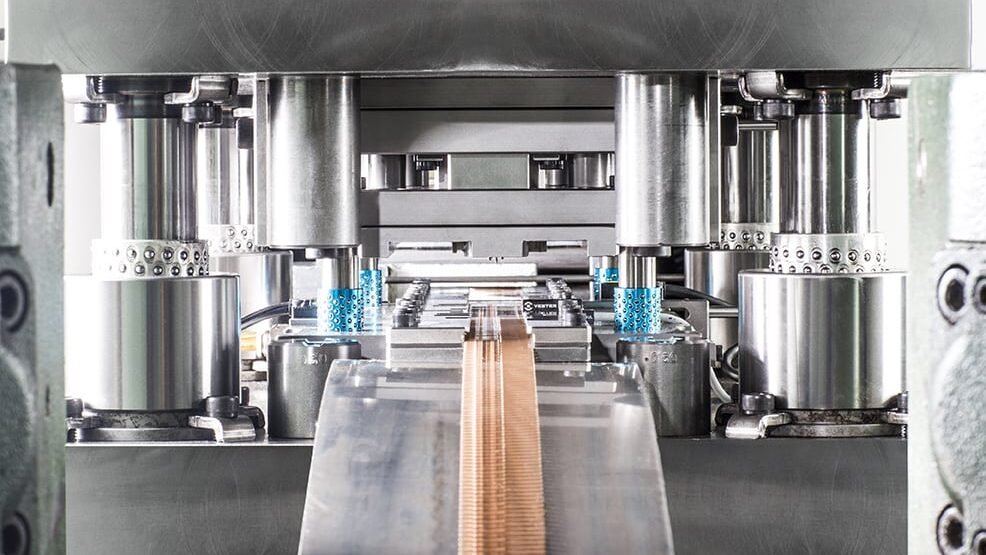
Who benefits most from precision tool and die services?
In the vast landscape of manufacturing, the demand for precision is ever-growing. As industries evolve and products become more intricate, the need for exactness in every component becomes paramount. This is where precision tool and die services come into play, offering a solution that ensures every part is crafted to perfection.
Precision Across Industries
Precision tool and die services are not limited to a single industry. Instead, they span across various sectors, each with its unique requirements and challenges.
- Automotive: In the automotive industry, precision is crucial. From the engine components to the intricate electronics, every part needs to fit perfectly to ensure the vehicle’s optimal performance. Precision tool and die services ensure that every component, whether it’s a tiny screw or a complex gear, is manufactured to the highest standards.
- Aerospace: The aerospace industry demands components that can withstand extreme conditions. Whether it’s a commercial airliner or a space shuttle, the components need to be robust, durable, and precise. Tool and die services play a pivotal role in ensuring that these components meet the stringent standards set by the industry.
- Electronics: As electronic devices become more compact and feature-rich, the components inside them need to be more precise. From microchips to connectors, precision tool and die services ensure that these components are manufactured with the utmost accuracy, ensuring the device’s functionality and longevity.
- Consumer Goods: Even everyday items, like kitchen appliances or toys, benefit from precision tool and die services. These services ensure that the products are safe, durable, and function as intended.
A Universal Solution
Any business, regardless of its size or industry, that requires consistent, high-quality parts for their products stands to benefit immensely from precision tool and die services. Whether it’s a startup launching a new product or a multinational corporation scaling up its production, precision tool and die services offer a solution that guarantees quality, consistency, and reliability.
In conclusion, precision tool and die services are the unsung heroes of the manufacturing world. They ensure that products, across industries, are built to the highest standards, meeting the ever-growing demands of consumers and industries alike. As technology advances and products become more complex, the role of precision tool and die services will only become more significant, ensuring excellence in every line.

Who are the skilled craftsmen behind precision tool and die production?
The world of precision tool and die production is a blend of art and science, where meticulous attention to detail meets cutting-edge technology. At the core of this intricate process are the skilled craftsmen, engineers, and technicians who breathe life into every tool and component. But who exactly are these individuals, and what sets them apart in the realm of manufacturing?
The Craftsmen: Masters of Detail
Craftsmen in the tool and die industry are the embodiment of traditional skills honed over years, if not decades. These are individuals who have a deep understanding of materials, techniques, and the nuances of shaping and molding. Their hands have crafted countless tools, and their eyes can discern imperfections that most would overlook. Their expertise is not just in their hands but also in their intuition and experience.
Engineers: The Brains Behind the Design
While craftsmen bring the physical aspect to life, engineers are responsible for the design and conceptualization. Using advanced computer-aided design (CAD) software, they create blueprints that dictate how a tool or component should be. Their knowledge of materials, stress analysis, and functionality ensures that every design is not only precise but also efficient and durable.
Technicians: The Bridge Between Tradition and Technology
Technicians play a pivotal role in marrying traditional craftsmanship with modern technology. They operate and maintain the high-tech machinery used in the production process, from CNC machines to precision lathes. Their expertise ensures that the designs conceptualized by engineers are accurately realized by the craftsmen.
Continuous Learning and Adaptation
The world of precision tool and die production is ever-evolving, with new technologies and techniques emerging regularly. These professionals, be it craftsmen, engineers, or technicians, are committed to continuous learning. They attend workshops, undergo training, and stay updated with the latest in the industry, ensuring that their skills are always at the forefront of innovation.
The heart of precision tool and die production truly lies in its people. It’s a symphony where each player, from the craftsman to the engineer, plays a crucial role. Their combined expertise, passion, and dedication ensure that every tool and component produced is of the highest quality, meeting the exacting standards of precision that the industry demands. In a world where precision is paramount, these professionals are the unsung heroes, ensuring excellence in every cut, bend, and mold.
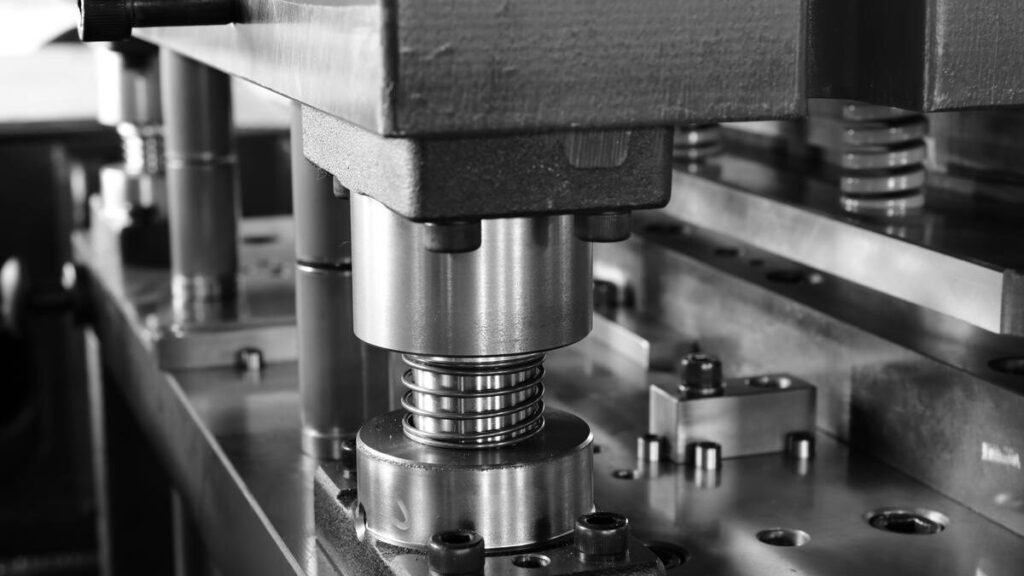
What sets your precision tool and die services apart from the competition?
In an industry where precision is the name of the game, standing out from the competition requires more than just delivering accurate products. It’s about the entire experience, from the first consultation to the final product delivery. So, what exactly sets our precision tool and die services apart?
Commitment to Excellence
Our ethos is built on a foundation of excellence. Every tool, every die, every component we produce is a testament to our unwavering commitment to delivering the best. Our team, from craftsmen to engineers, is trained to uphold the highest standards, ensuring that every product that leaves our facility is nothing short of perfect.
Continuous Innovation
While we take pride in our traditional craftsmanship, we are not bound by it. We believe in embracing the future, and that means continuously innovating. By investing in the latest technology and machinery, we ensure that our production processes are not only efficient but also at the cutting edge of the industry. This fusion of tradition and technology allows us to produce tools and dies that are both high-quality and state-of-the-art.
Customer-Centric Approach
We understand that every client is unique, with specific needs and challenges. That’s why we adopt a customer-centric approach, where we listen, understand, and then deliver. From personalized consultations to tailored solutions, we ensure that our services align perfectly with the individual requirements of each client. Our dedicated customer support team is always on standby, ensuring that every query, concern, or feedback is addressed promptly.
Quality Control
Quality is not just a buzzword for us; it’s a way of life. We have stringent quality control measures in place, ensuring that every product undergoes rigorous testing and inspection. Our quality assurance team ensures that every tool and die meets the industry standards and our own internal benchmarks.
Personalized Solutions
We recognize that off-the-shelf solutions don’t always cut it. That’s why we offer personalized solutions, tailored to meet the unique needs of each client. Whether it’s a specific material, a unique design, or a challenging deadline, we rise to the occasion, delivering solutions that are custom-made for you.
In a market flooded with competitors, our precision tool and die services stand out, not just because of the products we deliver but because of the experience we offer. Our commitment to excellence, our drive for innovation, and our focus on the customer set us apart. When you choose us, you’re not just getting a product; you’re getting a promise of quality, precision, and unparalleled service.
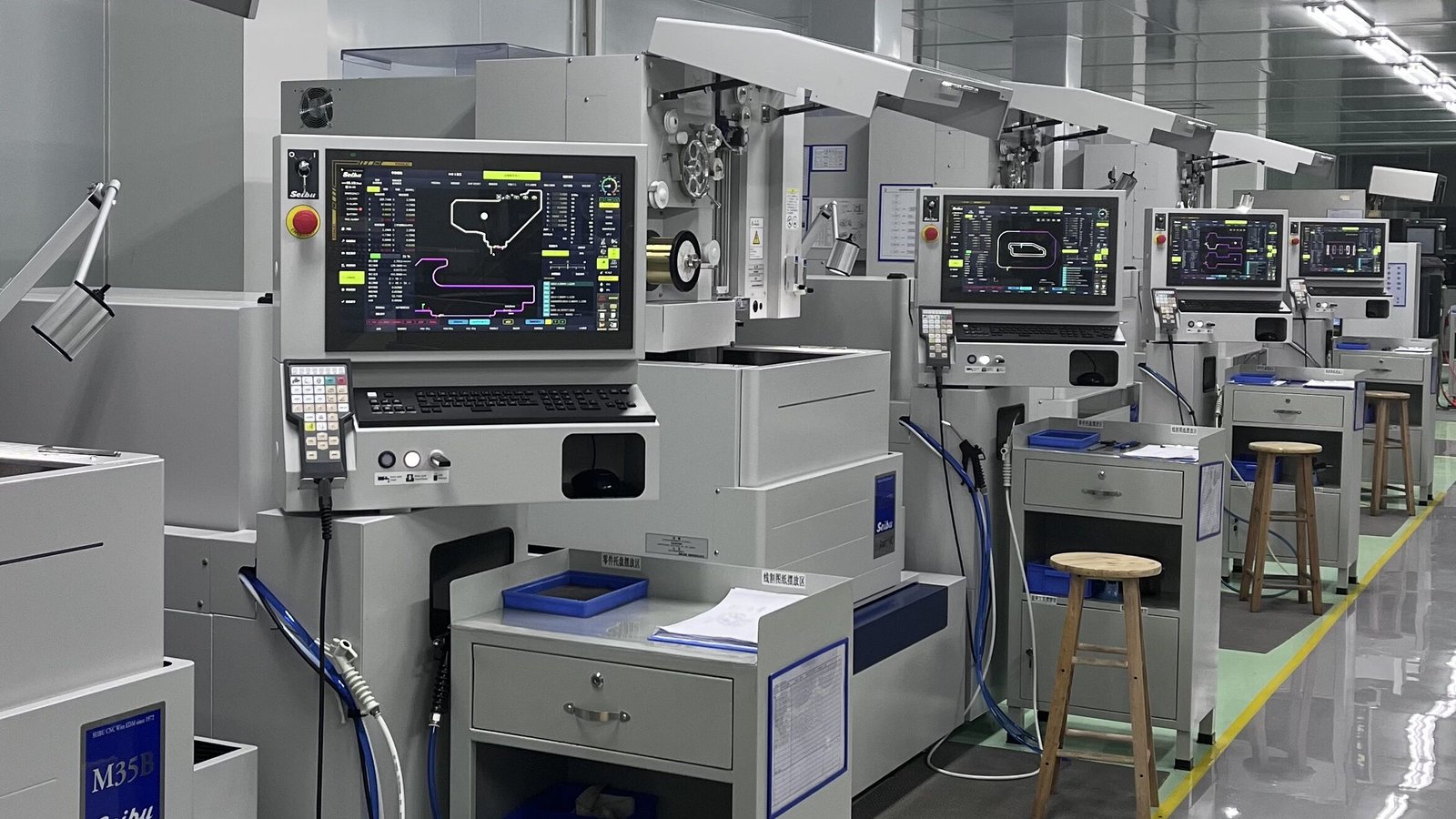
What materials and techniques are used in precision tool and die manufacturing?
Precision tool and die manufacturing is a sophisticated process that requires a combination of the right materials and advanced techniques to produce components that meet exacting standards. Let’s delve deeper into the materials and techniques that define our precision tool and die manufacturing process.
Materials Used
- High-Speed Steel (HSS): Known for its ability to withstand higher temperatures without losing its hardness, HSS is a popular choice for tools that require durability and resistance to wear. Its unique properties make it ideal for cutting tools, drills, and other components that undergo rigorous operations.
- Carbide: Comprising of tungsten and carbon, carbide is renowned for its hardness and durability. It offers excellent wear resistance, making it a preferred choice for tools that need to maintain their sharpness over prolonged use.
- Various Alloys: Depending on the specific requirements of the tool or die, we use a variety of alloys that offer a combination of strength, durability, and corrosion resistance. These alloys are formulated to provide specific properties, ensuring that the final product meets the desired specifications.
Techniques Employed
- CNC Machining: Computer Numerical Control (CNC) machining is a computer-aided manufacturing process where pre-programmed software dictates the movement of machinery. This technique allows for high precision and consistency, making it ideal for producing complex shapes and designs.
- EDM (Electrical Discharge Machining): EDM is a non-traditional machining process that uses electrical sparks to shape a workpiece. It’s especially useful for hard materials that are difficult to machine using traditional methods. The process offers high precision and is often used for intricate designs and patterns.
- Traditional Milling: Milling is a machining process where a rotating cutter removes material from a workpiece. While CNC milling is automated, traditional milling relies on manual operation, offering flexibility and precision for specific tasks.
- Grinding: Grinding is a finishing process that uses an abrasive wheel to smooth or finish metal or other materials. It’s essential for giving tools and dies a smooth finish, ensuring that they function optimally.
Precision tool and die manufacturing is a blend of choosing the right materials and employing the best techniques. By utilizing a combination of traditional and modern methods, we ensure that every product we produce meets the highest standards of quality and precision. Whether it’s a simple tool or a complex die, our commitment to using the best materials and techniques ensures that our clients receive products that exceed their expectations.
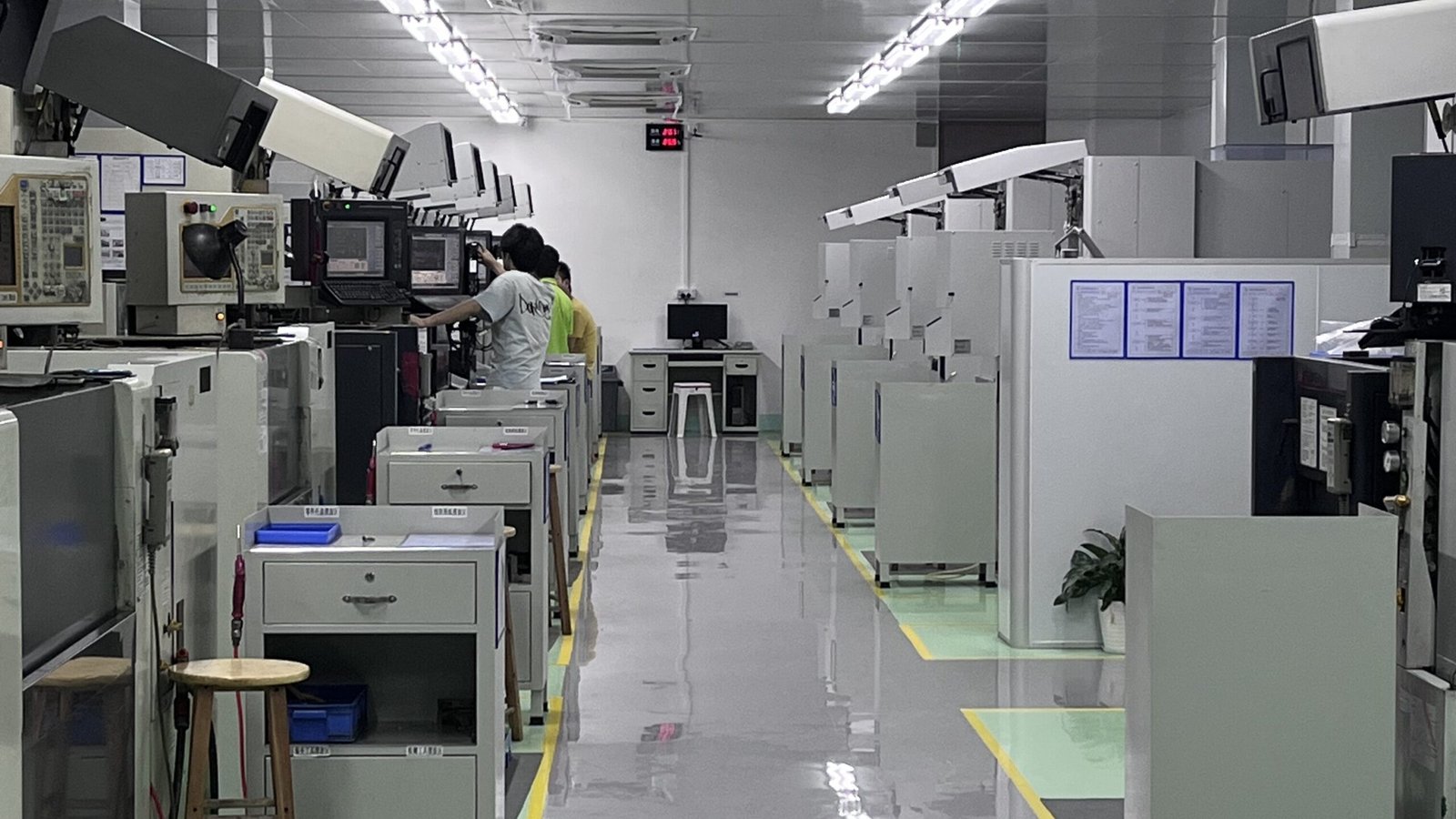
When should businesses consider upgrading or optimizing their tool and die solutions?
In the dynamic world of manufacturing, staying ahead of the curve is essential for maintaining a competitive edge. One of the critical aspects of this is ensuring that the tools and dies used in production are up-to-date and optimized for maximum efficiency. But when is the right time for businesses to consider upgrading or optimizing their tool and die solutions? Let’s explore.
Scaling Up Production
As businesses grow and production volumes increase, the demands on tools and dies also escalate. What worked for a smaller scale might not be efficient for larger volumes. Upgrading or optimizing tool and die solutions can help businesses meet these increased demands without compromising on quality or efficiency.
Introducing New Products
Every product has its unique requirements. When businesses introduce new products or diversify their product range, they might need specialized tools and dies to cater to the specific needs of these new products. Upgrading ensures that the manufacturing process is tailored to produce the new products to the desired standards.
Wear and Tear
Tools and dies are subjected to constant stress during the manufacturing process. Over time, they can show signs of wear and tear, leading to decreased efficiency and product quality. Regular assessments can help identify these signs early on, and businesses can consider upgrading before it impacts production adversely.
Technological Advancements
The manufacturing industry is continuously evolving, with new technologies and techniques emerging regularly. By upgrading to the latest tool and die solutions, businesses can leverage these advancements, leading to improved efficiency, reduced production costs, and enhanced product quality.
Regular Assessments
It’s essential for businesses to conduct regular assessments of their manufacturing processes. These assessments can identify bottlenecks, inefficiencies, or areas where the current tools and dies are not delivering optimal results. Based on these findings, businesses can make informed decisions about upgrading or optimizing their solutions.
Ensuring Efficiency and Product Quality
At the end of the day, the primary goal of any business is to deliver high-quality products efficiently. Regular optimizations of tool and die solutions ensure that the manufacturing process remains streamlined, reducing wastage, improving production speed, and ensuring that the final product meets the desired quality standards.
Upgrading or optimizing tool and die solutions is not just about replacing old tools with new ones. It’s about ensuring that the manufacturing process remains efficient, cost-effective, and produces high-quality products. By recognizing the signs and understanding when to upgrade, businesses can stay ahead of the curve, ensuring continued success in a competitive market.

Where can businesses access your precision tool and die services?
In today’s globalized world, accessibility and reach are paramount for businesses to thrive. We understand the importance of being available to our clients whenever and wherever they need us. So, where can businesses access our top-notch precision tool and die services? Let’s explore.
Official Website: Our primary digital gateway, our official website, offers comprehensive information about our services, products, and solutions. Clients can browse through our offerings, view detailed specifications, and even request quotes or consultations. The website also features a user-friendly interface, FAQs, and customer testimonials, providing a holistic view of what we bring to the table.
Regional Offices: To cater to our diverse clientele spread across different geographies, we have established regional offices in strategic locations. These offices serve as local hubs, providing sales, support, and technical assistance. Our trained staff at these offices ensure that clients receive personalized attention, addressing their unique needs and requirements.
Authorized Dealers: We have partnered with a network of authorized dealers who are well-versed with our products and services. These dealers undergo regular training and updates, ensuring that they represent our brand with the same commitment and expertise that we uphold. Businesses can approach these dealers for product inquiries, purchases, and even after-sales support.
Industry Trade Shows and Exhibitions: We believe in staying connected with the industry and our clients. That’s why we actively participate in leading industry trade shows and exhibitions. These events offer an excellent platform for businesses to experience our products firsthand, engage with our experts, and gain insights into the latest trends and innovations in precision tool and die manufacturing.
Consultations: Understanding that every business has unique needs, we offer personalized consultations. Whether it’s a new project, an upgrade, or a challenge that businesses are facing, our team of experts is always ready to provide tailored solutions. These consultations can be scheduled through our website, regional offices, or even during trade shows.
Accessibility is at the core of our business strategy. Whether it’s through our digital platforms, physical offices, dealer network, or industry events, we ensure that businesses can easily access our precision tool and die services. With a focus on customer-centricity, we are committed to delivering excellence, no matter where our clients are located.
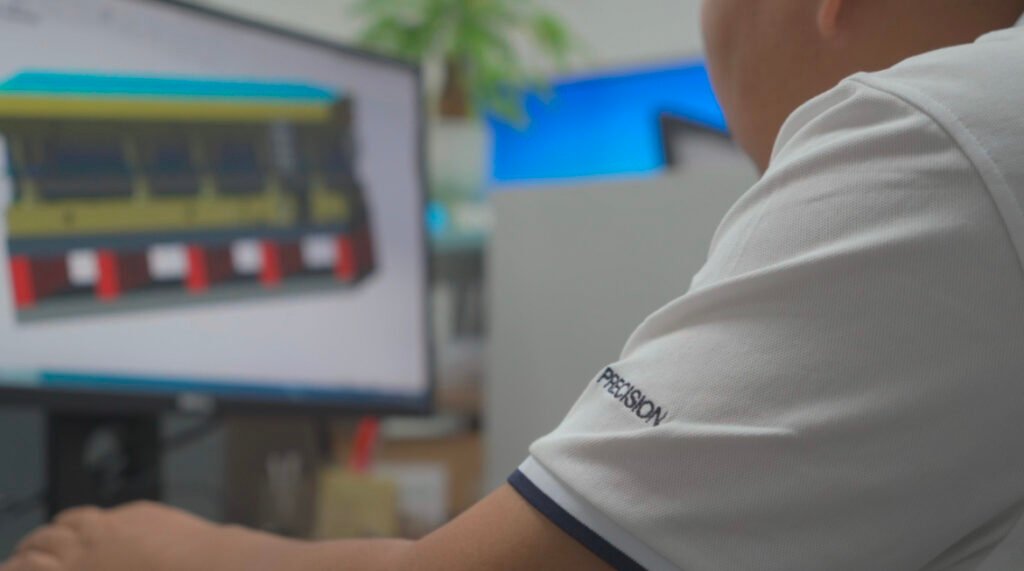
Why is precision essential in tool and die manufacturing?
In the intricate world of tool and die manufacturing, precision is not just a desirable trait—it’s an absolute necessity. The importance of precision in this field cannot be overstated, and here’s why:
Consistency: Precision ensures that every tool and die produced is consistent with the last. This uniformity is crucial, especially in large-scale manufacturing where thousands or even millions of parts are produced. Any inconsistency can lead to discrepancies in the final product, affecting its functionality and quality.
Reduces Wastage: Inaccuracies in tool and die manufacturing can lead to significant material wastage. If a tool or die is not precise, it might not fit or function correctly, rendering it useless. This not only leads to material wastage but also increases production costs. Precision ensures that every piece produced is up to the mark, minimizing wastage and maximizing efficiency.
Guaranteed Specifications: Tools and dies are often manufactured to meet specific client or industry specifications. Precision ensures that these specifications are met accurately. Whether it’s a particular size, shape, or functionality, precision guarantees that the tool or die will match the desired specifications to the letter.
Critical for Sensitive Industries: Certain industries, such as aerospace, medical, and automotive, have extremely stringent standards. In these sectors, even a minor deviation can have serious consequences. For instance, an imprecise tool used in an airplane part or a medical device can compromise safety. In such industries, precision is non-negotiable and is of paramount importance.
Enhances Product Quality: Precision in tool and die manufacturing directly impacts the quality of the final product. A precisely manufactured tool will produce high-quality parts, enhancing the overall quality of the final product. This not only meets customer expectations but also reinforces the brand’s reputation for quality and reliability.
Cost-Efficiency: While achieving precision might require an initial investment in technology and training, it pays off in the long run. Precise tools and dies reduce the need for rework, minimize wastage, and ensure efficient production processes. This leads to cost savings and higher profit margins.
In tool and die manufacturing, precision is the cornerstone of success. It ensures consistency, quality, and efficiency, making it indispensable. In industries where even a millimeter can make a difference, the importance of precision cannot be emphasized enough. It’s not just about meeting specifications; it’s about upholding a commitment to excellence, safety, and reliability.
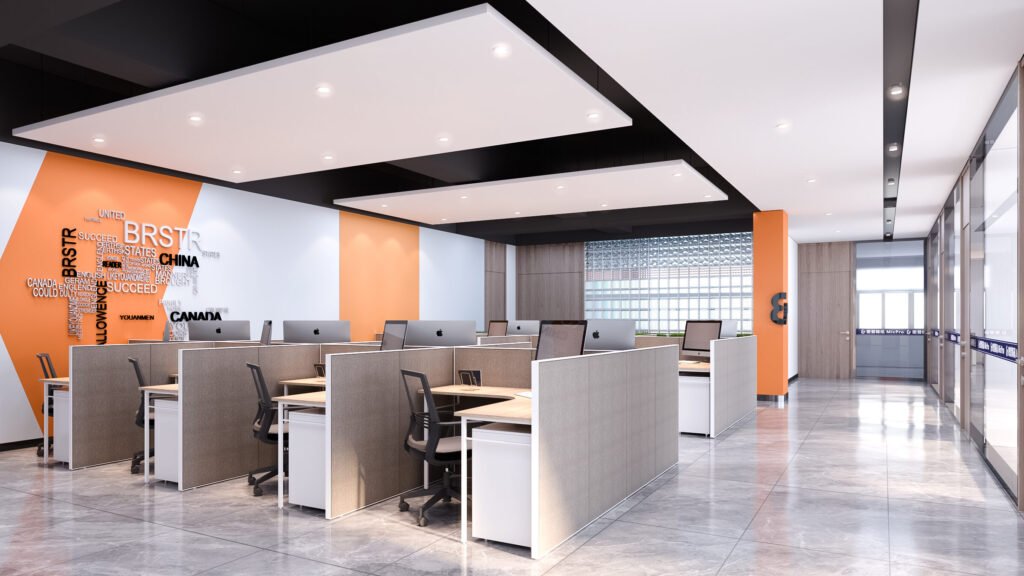
How do we maintain precision in every aspect of our tool and die processes?
Precision is the lifeblood of tool and die manufacturing. At MicPro Precision, we understand the paramount importance of maintaining precision throughout our processes. Here’s a detailed look at how we ensure unwavering accuracy at every step:
Rigorous Quality Checks: Before any tool or die leaves our facility, it undergoes a series of stringent quality checks. These checks are designed to identify even the minutest deviations from the desired specifications. By catching and rectifying any discrepancies early on, we ensure that the final product is of the highest quality and precision.
State-of-the-Art Equipment: Technology plays a pivotal role in achieving and maintaining precision. We have invested heavily in cutting-edge equipment that offers unparalleled accuracy. From CNC machines to precision measurement tools, our arsenal of state-of-the-art equipment ensures that every tool and die we produce meets the exacting standards our clients expect.
Continuous Training: The best equipment is only as good as the people operating it. Recognizing this, we place a strong emphasis on continuous training. Our team undergoes regular training sessions to stay updated with the latest techniques, best practices, and industry standards. This ensures that they are equipped with the skills and knowledge to deliver products of the highest precision.
Regular Audits: To ensure that our processes remain streamlined and efficient, we conduct regular audits. These audits help identify any potential bottlenecks or areas of improvement. By addressing these issues proactively, we ensure that our processes remain optimized for precision.
Feedback Loops: Feedback is a valuable tool for improvement. We have established feedback loops with our clients, suppliers, and even within our team. This feedback helps us identify areas where we can enhance precision and make necessary adjustments.
Culture of Continuous Improvement: At MicPro Precision, we believe that there’s always room for improvement. We foster a culture where every team member is encouraged to seek ways to enhance precision. Whether it’s by adopting a new technique, investing in new equipment, or refining an existing process, our relentless pursuit of perfection ensures that precision is maintained at every step.
Precision is not just a metric for us—it’s a commitment. Through rigorous quality checks, advanced equipment, continuous training, and a culture of continuous improvement, we ensure that precision is ingrained in every aspect of our tool and die processes. Our clients trust us for our unwavering dedication to precision, and we take immense pride in living up to that trust.

How can potential clients request a consultation or quote for precision tool and die services?
Navigating the world of precision tool and die manufacturing can be intricate, and we understand the importance of providing potential clients with easy and efficient ways to connect with us. Here’s a step-by-step guide on how potential clients can request a consultation or quote for our services:
Official Website’s Contact Form:
- Visit Our Website: Head over to MicPro Precision.
- Navigate to the ‘Contact Us’ Section: Typically located in the website’s header or footer.
- Fill Out the Contact Form: Provide essential details such as name, company, email address, phone number, and specific requirements or queries.
- Submit the Form: Once filled out, click on the ‘Submit’ or ‘Send’ button. Our team will review the inquiry and get back to you promptly.
Customer Service Hotline:
- Dial Our Hotline: Call us at +86-133-3282-7778.
- Speak to Our Representative: Our trained customer service representatives are available to assist with your queries, provide information, and guide you through the consultation or quote request process.
- Schedule a Consultation: If desired, the representative can help schedule a consultation with one of our experts.
Email Inquiry:
- Draft an Email: Compose an email detailing your requirements, queries, or the specific services you’re interested in.
- Send to Our Official Email Address: Forward your email to info@micpressed.com.
- Await a Response: Our team typically responds to email inquiries within [specific time frame, e.g., 24-48 hours], providing detailed information, answers to queries, or a quote based on the provided details.
Additional Channels:
- Social Media: We’re also active on various social media platforms like LinkedIn, Facebook, and Twitter. Potential clients can send us a direct message or engage with our posts to initiate a conversation.
- Trade Shows & Exhibitions: We frequently participate in industry-specific trade shows and exhibitions. Clients can meet us in person at these events, discuss their requirements, and request consultations or quotes.
At MicPro Precision, we prioritize client engagement and strive to make the consultation and quote request process as seamless as possible. Whether you prefer a direct call, an email, or a face-to-face meeting at an industry event, our dedicated team is always ready and eager to assist. We look forward to collaborating with you and providing solutions tailored to your precision tool and die needs.
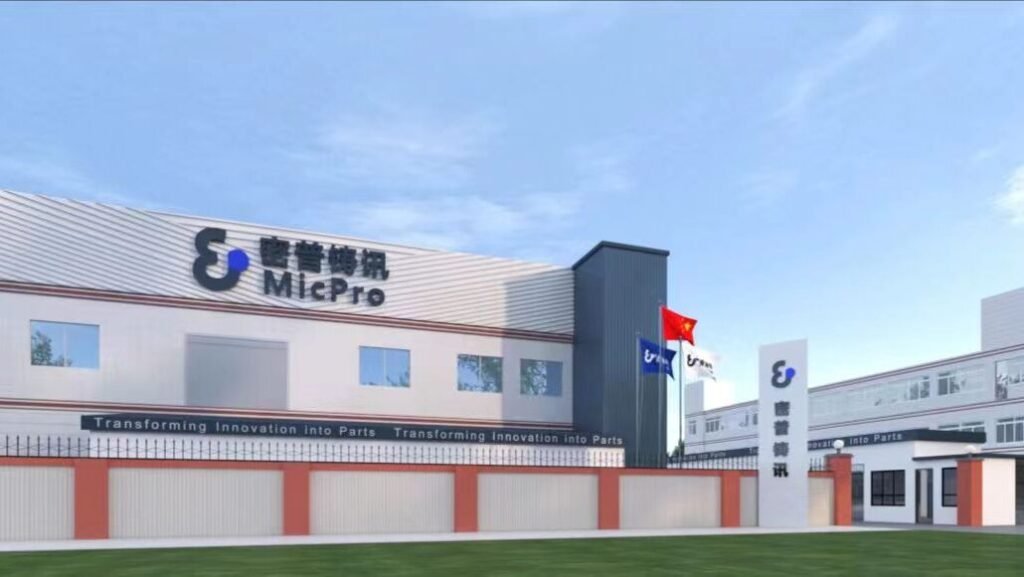
Conclusion
Precision in Tool & Die is not just a requirement; it’s an art. It’s the fine balance between craftsmanship and technology, tradition and innovation. As the industry evolves, our commitment to delivering precision in every line remains unwavering. Whether you’re a business looking for reliable tool and die services or an individual curious about the industry, remember – precision is the key to excellence.

Frequently Asked Questions (FAQs) about Precision Tool and Die Services
1. What is precision tool and die manufacturing?
Precision tool and die manufacturing involves the creation of tools, dies, molds, and other specialized equipment used in the production of various components. Precision in this context means that these tools and dies are manufactured to very tight tolerances to ensure accuracy and consistency in the final product.
2. Why is precision important in tool and die manufacturing?
Precision ensures that the final products or components produced using these tools and dies meet the desired specifications and quality standards. It reduces wastage, ensures consistency, and is crucial for industries where even a slight deviation can have significant consequences.
3. How long does it take to produce a custom tool or die?
The production time varies based on the complexity of the design, materials used, and specific client requirements. Typically, after receiving the design specifications, we provide an estimated timeline for completion.
4. Can you handle high-volume orders?
Yes, our facility is equipped to handle both small and large volume orders. Our state-of-the-art machinery and skilled workforce ensure timely delivery without compromising on quality.
5. What materials do you use in tool and die manufacturing?
We work with a variety of materials, including high-speed steel, carbide, various alloys, and more, depending on the application and client requirements.
6. Do you offer design and consultation services?
Absolutely! We have a team of experienced designers and engineers who can assist clients in designing tools and dies that meet their specific needs. We also offer consultation services to help clients optimize their manufacturing processes.
7. How do you ensure the quality of your tools and dies?
Quality is our top priority. We employ rigorous quality checks, use state-of-the-art equipment, and continuously train our team to ensure that every tool and die meets the highest standards of precision and quality.
8. What industries do you serve?
We cater to a wide range of industries, including automotive, aerospace, electronics, consumer goods, and more. Our tools and dies are versatile and can be customized to suit various applications.
9. How can I get a quote for my project?
You can request a quote by reaching out to us through our official website’s contact form, calling our customer service hotline, or sending us an email with your project details.
10. Do you offer after-sales support?
Yes, we believe in building long-term relationships with our clients. We offer after-sales support, maintenance services, and are always available to address any concerns or queries.



